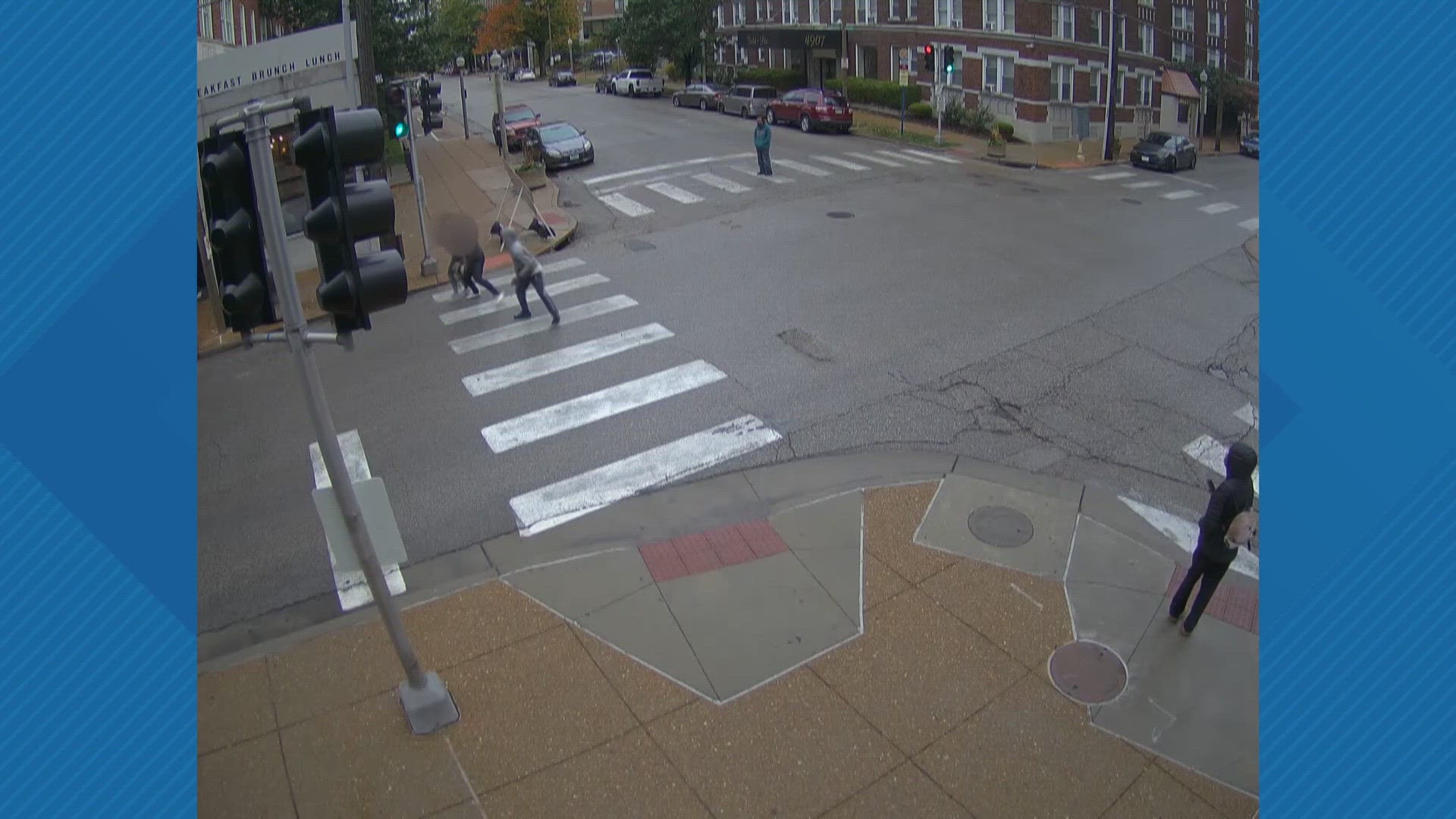ST. LOUIS — St. Louis' police chief spoke out about a bill that aims to create oversight of the department's surveillance technology.
It comes a week after Mayor Tishaura Jones filed an executive order relating to transparency and accountability for the technology.
Jim Whyte, who is the executive director for the Central West End Security Initiative, on Thursday also spoke out about oversight of surveillance.
"It's interesting, I think in some sense that the Board of Aldermen are not in touch with the community," Whyte said.
The board clashed with the mayor over the level of oversight that's needed for the St. Louis Metropolitan Police Department when she filed an executive order last week.
Executive Order 78 on surveillance transparency and accountability, would allow the following:
- Specifies how the SLMPD can and cannot use artificial intelligence and surveillance technologies.
- Requires the SLMPD to provide an annual report to the Board of Alderman with extensive detail on the use of surveillance technologies.
- Provides for increased transparency on how much money is being spent on these technologies.
- Prohibits vendors from providing access to or selling surveillance information or data to unauthorized individuals or selling it for anything of value.
- Specifies that SLMPD will only provide access to surveillance information or data to authorized individuals and will create policies for the use and sharing of this information and data.
- Outlines requirements for the retention and storage of information and data collected through surveillance technology.
- Requires that Missouri Sunshine laws be upheld when it comes to the disclosure or release of surveillance technology information and data.
Police Chief Robert Tracy also had this say.
"Even after having a chance to sit down and the way the bill is written ... Board Bill 185 ... I cannot support," Tracy said.
The bill would establish accountability separate from the department's current internal policies.
The bill is sponsored by Alderman Rasheen Aldridge and is co-sponsored by Alderwoman Alisha Sonnier.
The bill would allow surveillance technology including, but not 15 limited to these or other successor technologies:
- International mobile subscriber identity 16 (IMSI) catchers and other cell site simulators.
- Automatic license plate readers.
- Seventeen closed-circuit television cameras.
- Biometric surveillance technology, including facial, 18 voice, iris, and gait-recognition software and databases.
- Mobile DNA capture 19 technology.
- Gunshot detection and location hardware and services.
- X-ray vans.
- Twenty video and audio monitoring and/or recording technologies, such as surveillance cameras, 21 wide-angle cameras and wearable body cameras.
- Surveillance enabled or capable of 22 lightbulbs or light fixtures.
- Social media monitoring software.
- Through-the-wall radar (Page 4 of 18 Board Bill Number 185 Aldridge Dec. 8, 2023, 1) or similar imaging technology.
- Passive scanners of radio networks.
- Long-range two Bluetooth and other wireless-scanning devices.
- Radio-frequency I.D. (RFID) scanners.
- Software designed to integrate or analyze data from surveillance technology, including four surveillance target tracking and predictive policing software.
In hindsight, it would allow the city to have oversight on the department's cameras, internet surveillance listening devices, phone monitoring systems and other technologies.
Whyte said the bill would take away tools from the department.
"They say that this bill is not about restricting. It is completely about restricting the use of this technology. But when you try to use ordinances to restrict the police department's ability, you're taking tools out of their bag, and they're going to become less effective," Whyte said.
Aldridge said the bill would exclude special tax districts from oversight.
"The police would have to come in front of the board if it's there technology, not a a private citizen's technology or a residents technology," Aldridge said. "It's not an annual thing they have to come back in front of the board and say you got to get it approved every year. Only thing they would have to provide is an annual report, the cost of the technology and the deployment of the technology".
Sonnier said the department's opposition to the bill "doesn't help build trust in communities of color."
Tracy said he would like to continue the conversation about the bill with members of the board.
The board said it hopes to vote on the bill next week.

